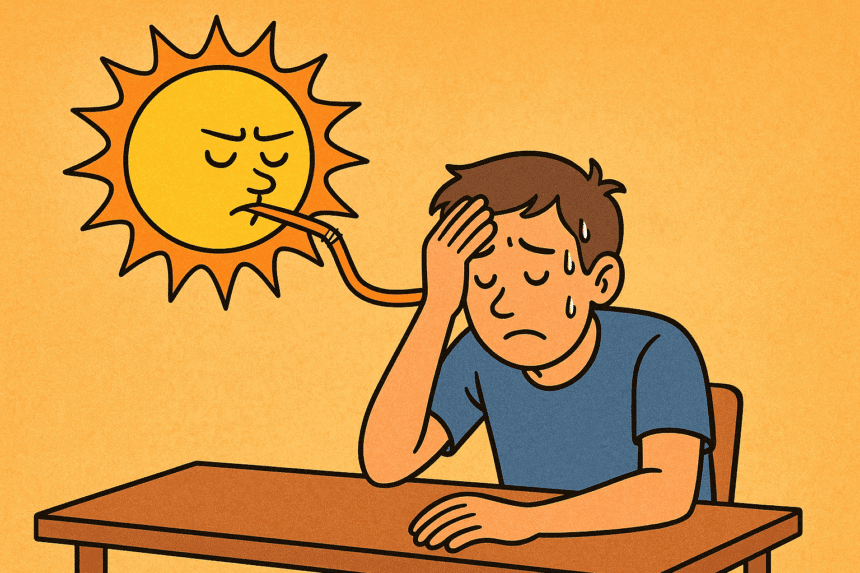As heatwaves become more intense and frequent due to climate change, a new global study has raised concerns over a commonly overlooked danger — the impact of extreme heat on mental health.
Researchers from Columbia University reviewed 83 heat action plans from 24 countries and found that while most mention mental health in passing, only a few take serious steps to address it.
Shockingly, less than one-third of the plans acknowledged specific mental health risks like increased suicide rates or psychological emergencies caused by heat, reported Dawn News.
Most countries focus their heat strategies on physical health risks such as dehydration and heatstroke, leaving a serious gap when it comes to protecting mental well-being.
Vulnerable Groups at Higher Risk:
Experts warn that heatwaves can worsen anxiety, depression, sleep problems, and social stress. Vulnerable communities, including the elderly, the homeless, and those with existing mental health conditions, are most at risk.
The researchers urge countries — especially those already experiencing extreme heat, like Pakistan — to update their heat action plans. They recommend including mental health experts, launching public awareness campaigns, and offering emergency support services during heat events.
As climate change accelerates, experts stress that ignoring the mental health side of rising temperatures could lead to serious long-term consequences.
Addressing this issue now is key to creating a safer, more resilient future.














